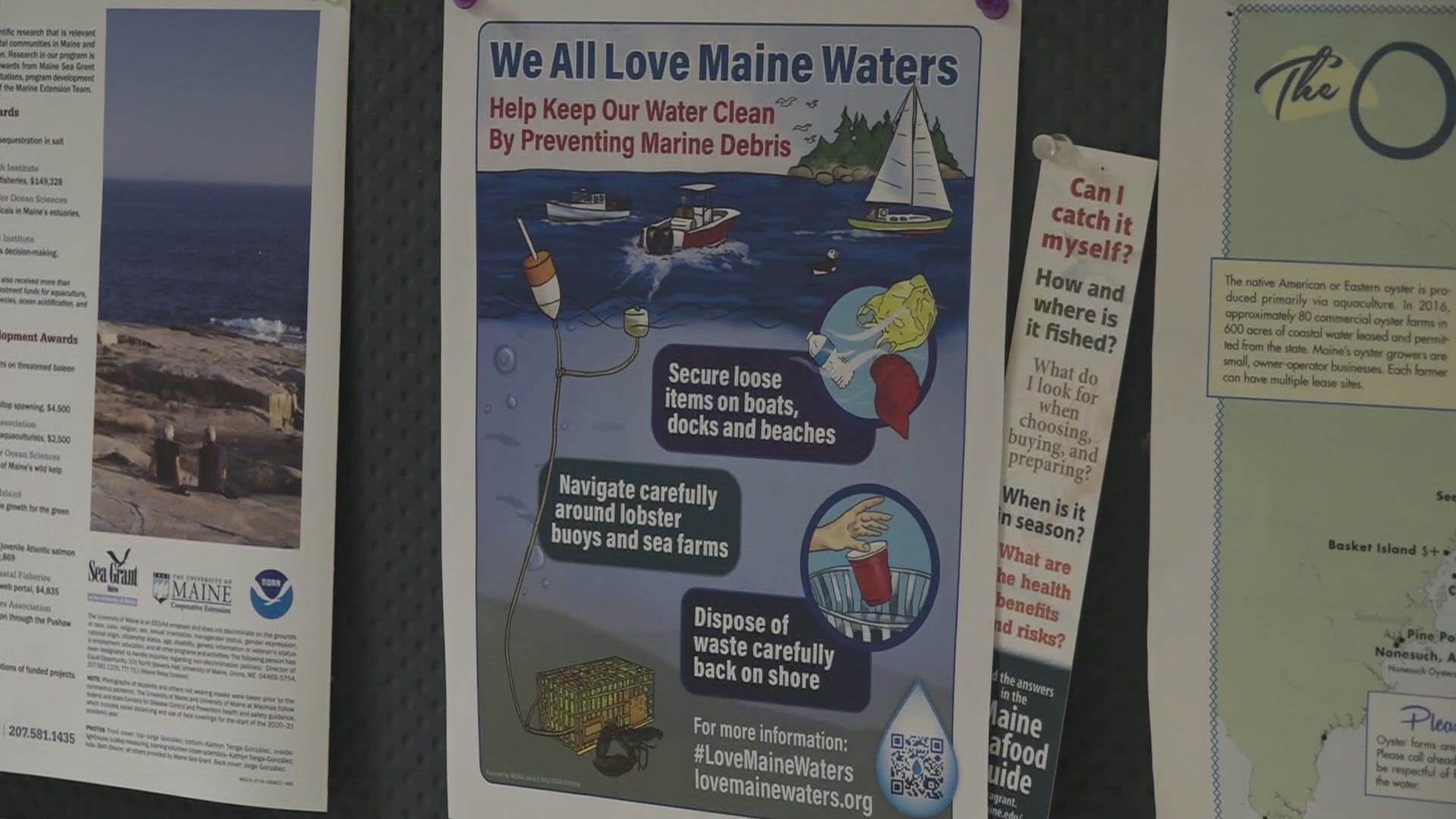ORONO, Maine — The "blue economy" is an emerging concept that is transforming the way we think about marine life.
It involves using ocean resources in a sustainable way to create economic growth and jobs while preserving the health of the ocean.
A new program at the University of Maine called Science Education Addressing the Blue Economy and Rural Success (SEA BEaRS) is supporting the blue economy by providing students with internships and research opportunities in marine sciences.
"Ever since I was like five I was always fascinated with waters, the ocean," Mason Pieger, a first-year student in the SEA BEaRS program, said.
He is one of seven students in the program, and over the next year, the program will support 25 students through a 2.5 million dollar grant from the National Science Foundation.
"I feel really honored to be here because I worked hard through high school and all my life and through academics and it just feels nice to be appreciated for excelling in school and I want to further my education," Pieger said.
The program gives students hands-on experiences in marine sciences including lab work, field trips, and opportunities to meet with mentors.
"It’s the sort of knowledge of the jobs that are out there and it does it in a way that will really help facilitate their success after they graduate," Heather Hamlin, the director of the school of marine sciences and co-lead for the program at UMaine, said.
Hamlin said the program also helps students engage with community organizations that are part of the blue economy, like the Maine Department of Marine Resources, to expose them to jobs in the field.
It’s an opportunity that Scarlett Sudor, the research and outreach programs coordinator for the University of Maine Cooperative Extension and the Aquaculture Research Institute, and co-lead for the SEA BEaRS program, wished she had when she was younger.
"I think all of us that led kind of building this program, all of us saw needs of students through their own experiences," Tudor said.

